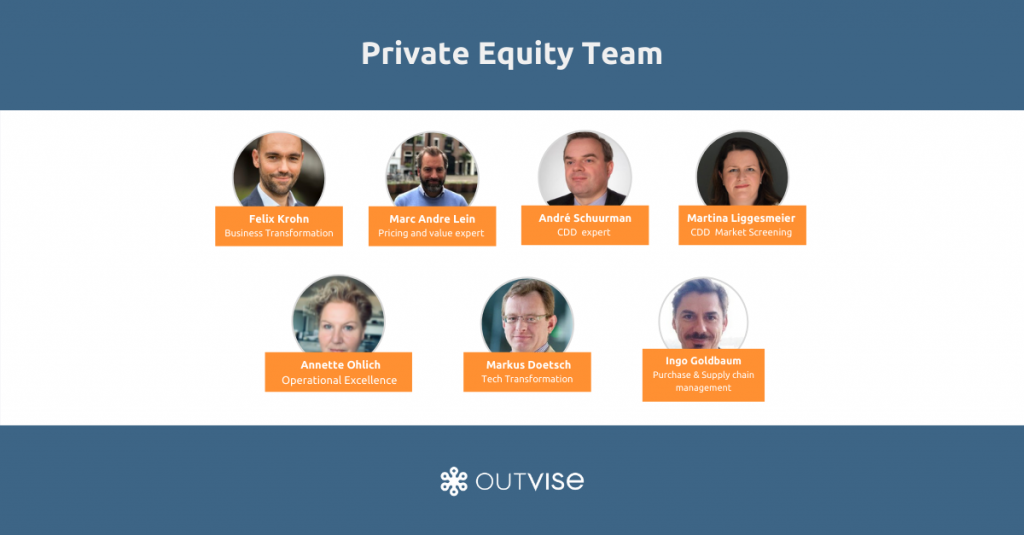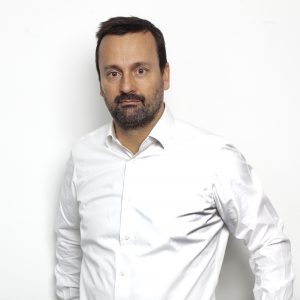
In the context of the COVID-19 pandemic, there are major new trends emerging in talent sourcing for a private equity team. Primarily, remote working has become the new normal. For business, this is an opportunity. Now, you no longer have to rely on a local pool of talent. Instead, a global network of private equity consultants and industry experts is at your fingertips.
Secondly, the pandemic has accelerated digital transformation. We’ve been talking about digital transformation for years, but the COVID-19 crisis has forced digital up the agenda. The only way to navigate the chaos of unexpected lockdowns and restrictions is to adapt; that is, implement new tools, procedures, and ways of connecting.
Last but not least, businesses are compelled to be more flexible. Organisations are being cautious, and particularly cautious about taking on new hires. However, talent is essential to embracing new projects and new ideas, so companies are looking for more flexible solutions to human resources.
If you put all of this together, the response lies in the gig economy. This model is a game changer under these conditions, giving companies that are willing to embrace it an all-important competitive edge in a challenging environment. With access to the right talent, when needed and as needed, companies can adopt the agile practices necessary for the post-pandemic business landscape.
Table of Contents
A curated ‘fit for purpose’ private equity team
These challenges apply to private equity in a particular way. In an environment where businesses are being more cautious, and indeed, the nature of investments is changing, private equity needs to take a targeted strategy. In response to this requirement, Outvise curated a premium private equity team of professionals with specific experience. These individuals understand the needs of PE: they speak their language and they understand how they behave.
This is why we chose professionals that have worked for first-tier consultancies, such as McKinsey’s, Oliver Wyman, or other major corporates like Swisscomm or KPMG. Equally, we solicited people who have worked in C-level roles. The private equity team is constructed with synergy in mind: each member’s expertise is complementary. This creates a holistic view from origination, through to tech and business transformation to exit, facilitating portfolio company value enhancement. Essentially, we curated the team according to the following four pillars:
- Independent management consultants or C-level managers.
- Curated private equity network with shared values, by invitation only.
- Complementary profiles that provide an end-to-end service.
- Senior experience in private equity.
Functional experts vs industry insiders
However, we decided to come at this from a slightly different angle in regard to each member’s skill set. Instead of appointing industry-specific experts, we took a functional approach. Essentially, this meant selecting professionals with experience in delivering certain aspects of a private equity project: for instance, an expert in market screening, another in origination, due diligence, commercial solutions, technical solutions, commercial excellence, PE operational excellence, procurement, and so forth. Ultimately, it was about choosing professionals that understood the frameworks and processes as opposed to the specific industry.
This gives these individuals extra dynamism and flexibility, enabling them to jump into projects and solve key questions. Equally, in terms of soft skills, this team excels in leadership; they have the seniority to interact with C-levels and drive change, despite working with the organisation a short while. To summarise, each member of this premium team has the following qualities:
- Speed: Flexible, independent professionals.
- Expertise: To quickly identify value levers.
- Leadership: The seniority to drive change.
Next, drawing on their short interviews from the webinar, we’ll have a look at how a few of these experts fulfilled each of these characteristics in more detail.
Speed: Flexible, independent professionals
To demonstrate speed is commercial due diligence expert André Schuurman. Currently based in Amsterdam, André has worked in strategy consulting with OC&C before moving to Cluster, which is now part of Oliver Wyman. Later in his career, he led a regional CDD practice at KPMG and now works as an independent consultant serving private equities and venture capital clients.
André discussed the merits of taking a functional approach. Essentially, to really gain confidence in a target’s commercial attractiveness and the viability of its business plan, you need a strategy-led commercial due diligence report driven by your investment hypothesis – and this is about a lot more than market conditions.
This is because to produce a bankable CDD report, most industry experts alone find it challenging to focus the analysis and structure. For instance – and this is what demonstrates the amazing agility of his method – André was approached by a Dutch PE that had engaged an industry expert for a CDD. After three weeks, the expert returned a series of bullet points with opinions, no analysis and hardly any comment on the financial forecast. The private equity team approached André to turn the report around, and within three weeks, he delivered a top-notch report that resulted in a highly lucrative acquisition.
That said, sometimes the project is too early-stage to warrant a bankable CDD report. However, the PE still needs market intelligence – and this is where Martina Liggesmeier demonstrates speed. Martina is an expert in driving origination and market screening, with experience working with Apax Partners, Castik Capital, and Afinum, to name a few.
In her presentation, Martina makes the case for drafting in external support when analysing a potential acquisition’s profitability. She points out that in a small PE, senior players should be out in the field, not at their desks doing research. An unfortunate by-product of this is, of course, a lack of intelligence in the early stages of a deal. Meanwhile, it also tends to be too early in the game to pour resources into a bankable CDD report.
This is why external expertise is indispensable to streamline and secure the origination phase. Martina gave an example: while supporting a mid-market PE in market assessment for medical cosmetics – a very high-growth market – she found that unfortunately, it’s not very well covered by current market research. Therefore, Martina spearheaded a full market screening project with interviews, market definition, sizing and trend analysis. After one to two weeks of rigorous research, the client received a report that answered the main investment queries, enabling the company to approach interesting targets right away.
Expertise: The capacity to quickly identify value levers
Looking later into the acquisition cycle, first to demonstrate expertise is Ingo Goldbaum, procurement and supply chain management expert. With over a decade’s experience in management consultancy, telco, and in the engineering and manufacturing industries, Ingo now has a specific focus in guiding clients through change processes and optimizing their supplier base and supply chain.
Global supply chains and procurement are essential functions right now, making expert consultancy indispensable. This is especially the case when reflecting on the beginning of the pandemic in China, where the lockdown caused severe disruption in manufacturing supply chains globally. In regard to private equity team specifically, having a handle on procurement and sourcing is essential. This is not usually because of the procurement department, but because of the agreements you have with suppliers; these will be crucial to understanding where and how money is spent.
Ingo went on to give an example. In his 20 years of experience, he found that in the first six months of an acquisition, roughly 20% of savings were made renegotiating agreements back to market conditions. Normally, 20% of your supplier base will account for 80% of your spend, so after this quick bit of housekeeping, midterm activities can be undertaken with a more strategic approach. Ultimately, it leads to repeatable and recurring savings that make the acquisition more lucrative in the mid-to-long term. Thus, supply chain expertise is indispensable for maximising value.
From the supply chain to taking a product to market, expertise is essential – and this is what Marc Andre Lein brings to the table. Marc is a highly specialised value-based pricing expert, with experience at BCG and Oliver Wyman. In a nutshell, value-based pricing is the analysis of customer needs, and then, adapting packaging and pricing in order to monetize these needs based on importance. Ultimately, the entire company is directed to deliver exactly on these customer requirements.
This is delivered by combining as many data points as possible to obtain a full overview. This isn’t only customer research; it’s also sales numbers, product service over time, evolving customer behavior, market dynamics, and the success of cross- and up-selling initiatives. Moreover, these questions aren’t industry-specific. In fact, value-based pricing is part of a process, and thus, not limited to a certain model. Therefore, it’s applicable to any industry, enabling the business to create long-term profitability in a holistic manner, adding value at any stage of a deal’s lifecycle.
Leadership in a private equity team: The seniority to drive change
The experience and leadership qualities to propel transformation are the second key feature of our private equity team. This aspect was well exemplified by Annette Ohlich in her presentation on PE operational excellence. Annette has 25 years of experience, so to use her words, she’s “gotten dirt under her nails in almost every job that you can do in operations”. She demonstrated this capacity to drive change in her discussion about why private equities should embrace operational excellence in the acquisition and post-acquisition phases.
She emphasized the most important factor in both stages was risk reduction: ensuring that the money paid as an investor is well spent. That is, the business has detailed information about how the company is structured and can be confident that investment is sound. This is particularly the case in the context of the coronavirus pandemic, where it’s all about predictability, or the lack thereof. Assuming things are going to go well, just because they would normally, is a big mistake. Instead, it is down to the PE to create predictability by ensuring structures are transparent and lean.
Annette noted that this approach to PE operational excellence particularly applies to interim management after an acquisition. Often, teams won’t be ready for both short and long-term perspectives; indeed, they’re often never ready during such significant upheaval in their professional lives. That’s why it is essential to have experts that have the seniority to drive change, and properly manage that process; they need to compel teams to adapt.
This notion of effective change management was also highlighted by the team’s business transformation specialist, Felix Krohn. Felix has observed that during the coronavirus pandemic, it’s been businesses with recurring revenue (as opposed to asset sales-based enterprises) that have weathered the storm. This is symptomatic of a broader shift in business models that prioritizes resilience, which subsequently, is attractive to venture capital and PE.
The software industry is a prime example. Whereas before many companies would sell a discrete product package, now, they tend to offer subscription services. This makes revenue more reliable, while creating a more convenient service for customers in regard to updates, bug fixes, and cost distribution. This is, naturally, a more customer-centric approach to delivering the product, addressing their pain points in regard to technology and finances.
However, this is a radical shift in business model that requires effective change management. This isn’t to say that PE should only look for businesses that already operate with recurring revenue models. In fact, many acquisitions have the potential to make the transition, but you need an expert in business transformation to ensure full organisational buy-in – that is, to reiterate, the seniority to drive change.
Connection to Outvise’s tech talent pool
So these were the pillars we used to curate this specialised private equity network: speed, expertise, and leadership, all exemplified by the insights they shared. This is but a sample of some of the compelling information that our seven-strong premium private equity team shared; with insights on everything from pricing and value management to market screening, we would really encourage you to watch the whole webinar to hear their full perspectives.
However, as a way of concluding, we will focus on the presentation given by Markus Doetsch, tech transformation specialist. In many ways, digitization permeates every aspect of a PE acquisition, from origination, through to business transformation, and exit – and this is even more the case within our current context. Digital is now driving business and drafting in proper expertise is essential.
For instance, Markus highlights that all too often, a business’s tech architecture is not informed by the business model. Naturally, this is key: the business should be equipped with the proper tools to meet its core objectives. Thus, an external expert can provide a fresh set of eyes to answer some core questions: does the tech architecture suit the actual business? Is it state of the art or is there room for improvement to boost efficiency and effectiveness of the actual business model?
Within a context specific to private equity, this external insight will help ascertain the level of digitization of the asset in question. From here, they can quantify the end need for transformation to tap into the full potential for future growth. Equally, with this insight you can assess whether or not the asset is prepared for digital disruptive changes, or indeed, is the asset already in a position to disrupt other businesses in the field.
Once a PE has these insights, there is an important next stage: tech transformation. By working with this premium team, private equity can leverage Outvise’s extensive talent pool. This is especially the case as digital acceleration is an increasingly pivotal characteristic of the current business environment, so having access to an exceptional resource of verified digital and TMT professionals is indispensable.
Investing in the current context with a private equity team
The pandemic context means that the business landscape is shifting. Private equity team needs relevant expertise to navigate these substantial changes, from digital acceleration to the unpredictability of the market. This is why at Outvise, we took a functional approach to curating our core team of PE experts: with a focus on execution over industry, this team can bring a wealth of knowledge to a variety of contexts, ensuring the success of an acquisition, from origination to exit, in spite of the continuingly volatile conditions.
However, with challenges come opportunities; in the new, hyper-digitized business environment, private equity has access to world-leading talent more than ever before. Now, verified, highly relevant expertise is just a click away. This only begins with our curated PE team, who can provide globally relevant expertise remotely. Further down the line, you can drive digital and business transformation with Outvise’s pool of tech professionals. This premium team will be on hand to advise you as to the most relevant professional, embracing digital acceleration and the wealth of talent the gig economy provides.
Pau Cerdà is co-founder of Outvise. Pau has founded several digital startups and consulting companies. He advised some major telecom and media groups. Former Oliver Wyman. Telecom Engineer + MBA (ESADE)





No comments yet
There are no comments on this post yet.